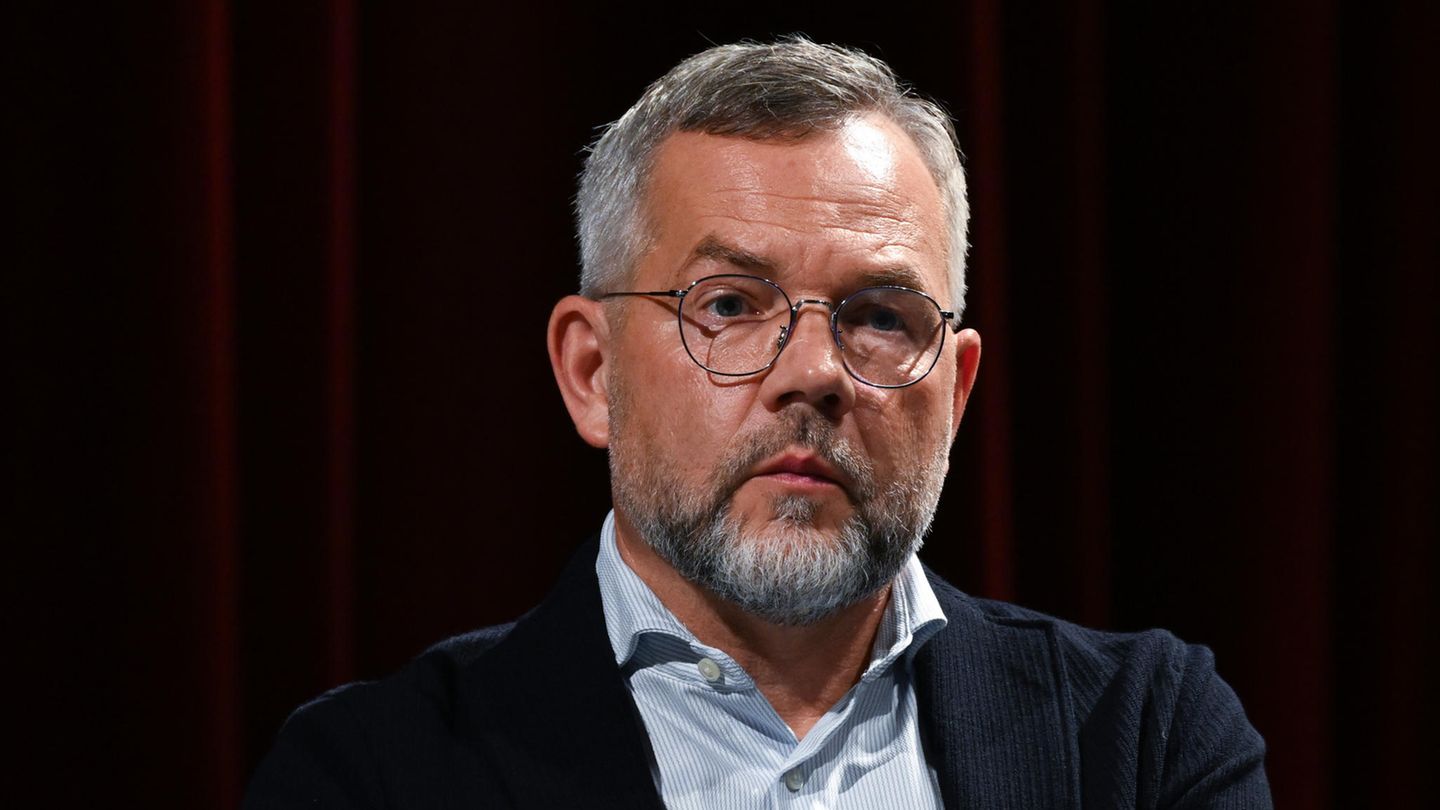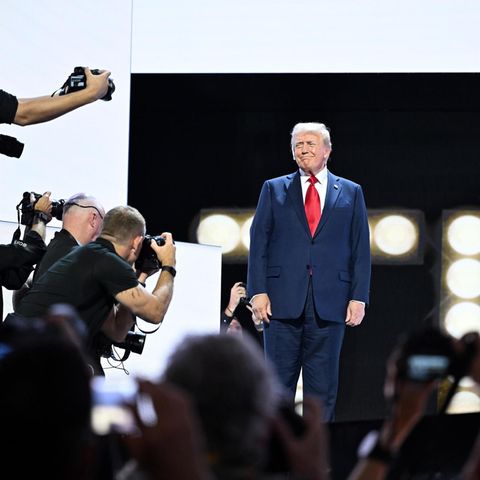interview
SPD foreign policy expert Roth: “Kneeling to Trump won’t help”
Copy the current link
What does Donald Trump mean for Germany and Europe? SPD foreign politician Michael Roth calls for more personal responsibility – and less election campaign about aid to Ukraine.
Mr. Roth, as soon as Trump is in office, he seems to be pulling out all the stops. What do you conclude from his first official actions?
That he is serious. Donald Trump is punishing all those who have been glossing over the situation in this country for months and telling us that it won’t get that bad. Trump is an enemy of liberal democracy and a threat to Europe. We must respond to this – not with outrage, but with action.
Trump conjures up a “Golden Age” for America that will no longer be exploited by anyone: what an age is dawning Europe and Germany?
Trump’s “America First” also means that Germany and Europe finally have to grow up in terms of security policy. Unfortunately, many people still don’t seem to realize that our security and freedom depend largely on the USA. Despite clear announcements from Washington, we have unfortunately not used the last few years sufficiently to position ourselves more defensively against Russian imperialism and the increasing autocracy worldwide. This is now taking its toll.
How “Trump-proof” are Europe and Germany set up?
Europe is divided when it comes to dealing with Trump, and we are at risk of paying a high price for this. There are two ways to counter Trump. The first: kiss his ring, crawl into his backside – just like national populists like Orbán or the AfD do. But that must not be an option for us.
Rather?
The second option requires strength and self-confidence, not indignation and know-it-alls. Europe must assume more responsibility and invest more in its defense, security and deterrence. The EU must prove that it cares about peace and security on its continent itself – and also pays the costs of defending Ukraine largely from its own coffers. This is the only way to meet Trump on an equal footing and to negotiate with him about punitive tariffs or security commitments.
Trump wants to be a “peacemaker” but left the Ukraine war unmentioned in his inaugural speech – because he considers it a European problem?
There are a lot of “peacemakers” walking around at the moment. They have me at their side when they advocate for a just peace that is not one-sidedly at the expense of Ukraine – anything else would be a false peace. Let’s face it: Trump’s focus is not on foreign policy. He wants to fundamentally change the USA. But this will also have a massive impact on us in Europe. Trump’s argument is not entirely wrong: Why should the USA save a European country thousands of kilometers away from Russian imperialism?
But in Germany there is already a debate about financing an additional three billion euros for Ukraine…
We must get used to investing significantly more in security, defense and deterrence for the foreseeable future. Without external security everything is nothing. We are talking about immense costs, which I cannot imagine financing in the long term without new debt.
Chancellor Scholz says that the three billion would have to be raised through new loans. Do you see it that way too?
Budget politicians tell me that we can manage this aid package – even without additional debt. Unfortunately, in the heated atmosphere in the election campaign, nothing is moving forward. Ukrainians die every day from Russian missiles and drones. That is why we must do everything we can to ensure that Ukraine can defend itself against these attacks.
Nevertheless, Scholz and other SPD politicians argue that otherwise there would be savings in pensions or infrastructure.
The pension is a guaranteed benefit; no savings can and will not be made. What is much more important is that Ukraine now quickly receives the three billion package that Defense Minister Boris Pistorius put together. All those responsible should now find a pragmatic solution. This is not a contentious issue for the election campaign – this is an emergency situation.
Ten years ago you emphasized the importance of solidarity between France, Poland and Germany, especially in times of crisis. What is the status of the Weimar Triangle?
Bad. Right now we need a strong core of stability in Europe that pulls together on fundamental foreign and security policy issues – in order to meet the USA on an equal footing. But France’s president is without a majority of his own, new elections are being held in Germany, and the prime minister in Poland is under massive pressure from EU opponents. Unfortunately, the necessary impulse will probably not be forthcoming in the next few weeks.
Former Foreign Minister and SPD leader Sigmar Gabriel complains that the triangle has been “criminally neglected” by the federal government for years. Agreed?
With three partners, blaming the federal government alone is not enough. Now would actually be the moment of the Weimar Triangle to get Europe on the right track. Unfortunately, the format does not have the necessary potency on all sides. If we don’t change this, the pace in Europe will continue to be determined by the most reluctant and nationalistic forces like Hungary or Slovakia. That would be devastating.
The federal elections are in a few weeks. Where should the future Chancellor’s first business trip lead: to Washington or Paris and Warsaw?
To Paris and Warsaw, that would be my unsolicited advice to the next Chancellor. We all know that we as Europeans will only be able to counter Trumpism through our own efforts. Kowling to Trump won’t help.
Source: Stern
I have been working in the news industry for over 6 years, first as a reporter and now as an editor. I have covered politics extensively, and my work has appeared in major newspapers and online news outlets around the world. In addition to my writing, I also contribute regularly to 24 Hours World.





